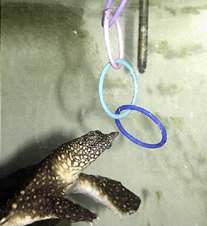Philosophers have been developing and proffering
different ethical stances for centuries and the
applicability of these ethical positions to society and to different sectors within society continues to raise
dissension and argument. Ethical consideration of issues
is an important tool for society to use and focuses on
what is acceptable and what is not within a particular
framework. Ethical theory is very varied and when the
term is used in the veterinary context, it usually refers to a
consequentialist, deontological or value-driven base. Ethical
theory covers a much wider arc, but for this article, let’s
just consider these.
Deontological arguments are rule-based (tell the truth
with no exceptions), whereas consequentialists base their
analysis on what brings the greatest benefit to the largest
number (tell the truth, but not if it lessens the benefit to
the most) and value-based ethics consider ethics from a
particular value stance (tell the truth, but exceptions can be
made if this might cause other values to be undermined).
These ideas can complement each other and can help to
provide a broader and potentially deeper understanding of
the issues considered.
Why is ethical analysis important for vets?
Ethical analysis is there to help provide us with a way of
considering our actions and the impact these may have
not only on our patients, but also on their owners and on
society. Ethical considerations help us to explore how we
should treat different species.
Ethics can provide a framework within which we can
consider the views of each interest group or stakeholder
and where these views can be weighted. This matrix has
the potential to provide a way to approach the development
of a consensual outcome.
In human medicine, there exists a wealth of literature
on professional ethics. The veterinary field lags behind, but is engaging in this
developing area and
including opportunities
for exploring ethical
issues during veterinary
training. Our guide to
professional conduct
has now moved from
the consideration of
professional etiquette
toward a code of
professional ethics, and so it becomes important for us all
to engage in the discussions this engenders.
The RCVS has instituted an ethics review process for
those in practice wishing to carry out clinical research and
universities, research institutes and other organisations
where animal investigations or animals are used in science
are now all subject to animal welfare and ethical review
boards (AWERBs).
These boards champion an ethical stance and challenge
protocols where there may be suggested actions that
compromise animal welfare and where, for example,
the mantra of the ‘three Rs’ (refinement, replacement,
reduction) have not been adequately applied.
Effective welfare legislation
As this introduction is being written, the spectre of reducing
our effective welfare legislation by failing to incorporate
Article 13 of the treaty of Lisbon into UK legislation has
arisen. This Article places a responsibility on government
to consider the impact of policy or policy development on
sentient animals. This legislation is important as under our animal welfare act, the duty of care is on the owner
or keeper of the animal and although the government
may choose to extend the animal population protected
under the act under Section 1(3) of the AWA (2006), there
is no element of duty to do this in consideration of other
legislative impact.
There are opportunities to explore ethical issues in
all areas of veterinary practice from disease control
(e.g. bovine TB and control of disease in wildlife), in the
correct usage and application of drugs (e.g. anthelminthic
resistance and dispensing of anthelminthics; antimicrobial
resistance and the use of antimicrobials in production
and companion animals), through to understanding the
environmental impact of rewilding (the introduction of lynx,
wolves or beavers into UK habitats).
Ethical reasoning allows us to navigate the different
interests and enables at least a consideration of the views
of all parties to problems we face. In this column, we will
explore these issues and encourage wider discussion of
some of the problems we currently face.
Paul Roger is the chair of the Animal Welfare Science, Ethics and Law Veterinary Association (AWSELVA).










